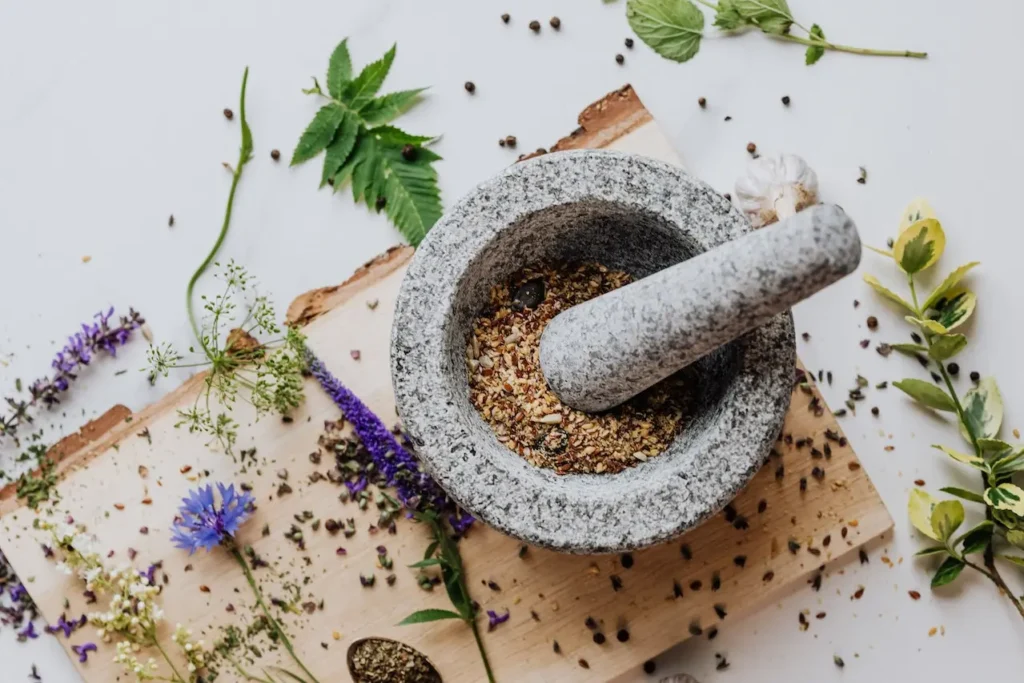Oregano is an aromatic plant grown in various regions of the world. Its popularity is due to its characteristics as a spice, and condiment and its medicinal properties. This herb is credited with benefits such as improving digestion, calming intestinal spasms, and relieving the symptoms of respiratory infections.
This plant, which has the scientific name Origanum vulgare, is an aromatic perennial herbaceous plant of the Origanum genus. It is of industrial and pharmaceutical importance due to its essential oil, which is used as a fragrance in soaps, cosmetics, and flavorings, among others, according to the text Review of the Production, Phytochemical Composition and Nutraceutical Properties of Mexican Oregano, from the Mexican Journal of Agricultural Sciences.
Oregano leaves are used as a condiment, whether dried or fresh; although dried leaves have more flavor and aroma. Its flavor is somewhat spicy and warm, with a lot of aroma. In addition, it can be grown in warm conditions in gardens, orchards, or in pots. This plant is closely related to other herbs such as mint, thyme, and basil.
Origanum vulgare is a plant with a straight stem, which can reach 80 centimeters in height. It is square, branched at the top, and completely covered with white fuzz. The leaves sprout in pairs at each node.
Properties of oregano
Oregano is often used to season dishes such as pizza, pasta, and salads. However, it is also believed to have medicinal properties that help the health of the body. According to naturopath Gabriela Ordoñez, this plant is an antioxidant, anti-inflammatory, antimicrobial, and digestive agent.
It is also a source of vitamins A, C, E, B6, and K; iron, calcium, thymol, and carvacrol. “The average serving of oregano is 1 g; this amount does not provide any significant amount of nutrients to the diet. In any case, the iron and calcium content deserves comment,” says the Spanish Nutrition Foundation.
Benefits of oregano and what it cures
Oregano can be found in different forms, as its medicinal properties have gained popularity in recent years. Below are some benefits of oregano, taken as a tea or infusion.
- Reduces heartburn and reflux, as well as other stomach discomforts.
- Prevents degenerative diseases. Its antioxidant properties protect the body’s cells and prevent aging.
- Strengthens the circulatory system. Prevents the appearance of blood clots.
- Prevents heart problems
- It is anti-inflammatory, so it is useful in cases of osteoporosis and arteriosclerosis.
- It helps you fall asleep and reduces anxiety due to its relaxing properties.
- It soothes menstrual pain, earache, toothache, and muscle cramps.
- It is a diuretic, which helps you lose weight.
- Soothes sore throat, cough, and common cold.
Oregano can be consumed as a tea or infusion. To prepare it, you need either dried or fresh oregano leaves, depending on your choice. Remember that dried leaves have a stronger flavor.
Bring a litre of water to a boil and when it reaches boiling point add a tablespoon of oregano. Let it boil for three minutes, then remove from the heat and let it sit for five minutes. Strain the liquid and drink it. Ideally, three cups a day at most.
Contraindications of oregano tea
Oregano does not cause any side effects. When taken in excess, it can cause symptoms such as nausea and vomiting, diarrhea, headache, dizziness, fatigue, muscle pain, and excessive salivation.
This herb, in essential oil form, is not recommended for children under 12 years of age, pregnant or breastfeeding people, or those under medical treatment. It is recommended that you consult a specialist before consuming it.

